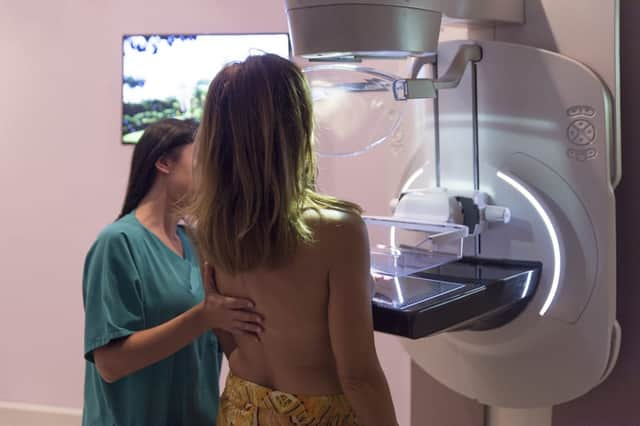Breast cancer screenings for women in their 40s 'could save lives' - according to a 23 year long study


Screening women for breast cancer a decade earlier than usual could help to save one life per 1,000 women checked, a study has found.
Usually, women in the UK are invited for breast screening every three years, from the age of 50. However, a new UK study says that lowering the screening age to 40 could save lives, without adding to the diagnosis of harmless cancers.
Advertisement
Advertisement
A 23 year long study
The research, which was followed up for 23 years, was based on data from 160,000 women across England, Scotland and Wales.
The scientists, who wrote up their findings in the Lancet Oncology, say they saw a reduction in breast cancer deaths from screening women in their 40s every year over the first 10 years that they were tracked.
There were 83 deaths in the group of 53,883 women in their 40s who were screened, compared to 219 deaths in the cohort of 106,953 women in the same age group who were not checked.
The reduction in deaths stemmed from the detection of grade 1 and 2 cancers, which sometimes progress more rapidly in younger women.
Advertisement
Advertisement
'Not clear if earlier screenings would be beneficial'
However, while researchers say that screening earlier could save one life for every 1,000 women checked, some experts argue that there are other considerations to keep in mind, such as cost.
There is also fear of over-diagnosis through screening women earlier, for example, detecting early cell changes which may not turn into problematic cancers. This risks unnecessarily exposing women to treatment.
Cancer Research UK told the BBC that it is still "not clear if reducing the breast screening age would give any additional benefit compared to the UK's existing screening programme."
Instead, the charity says the focus should be on getting cancer services "back on track" for women aged 50 to 70, after the disruption caused by the coronavirus pandemic.
Experts have warned that the lockdown pause on cancer services may create huge backlogs for screening, treatment and tests - all of which can save lives.